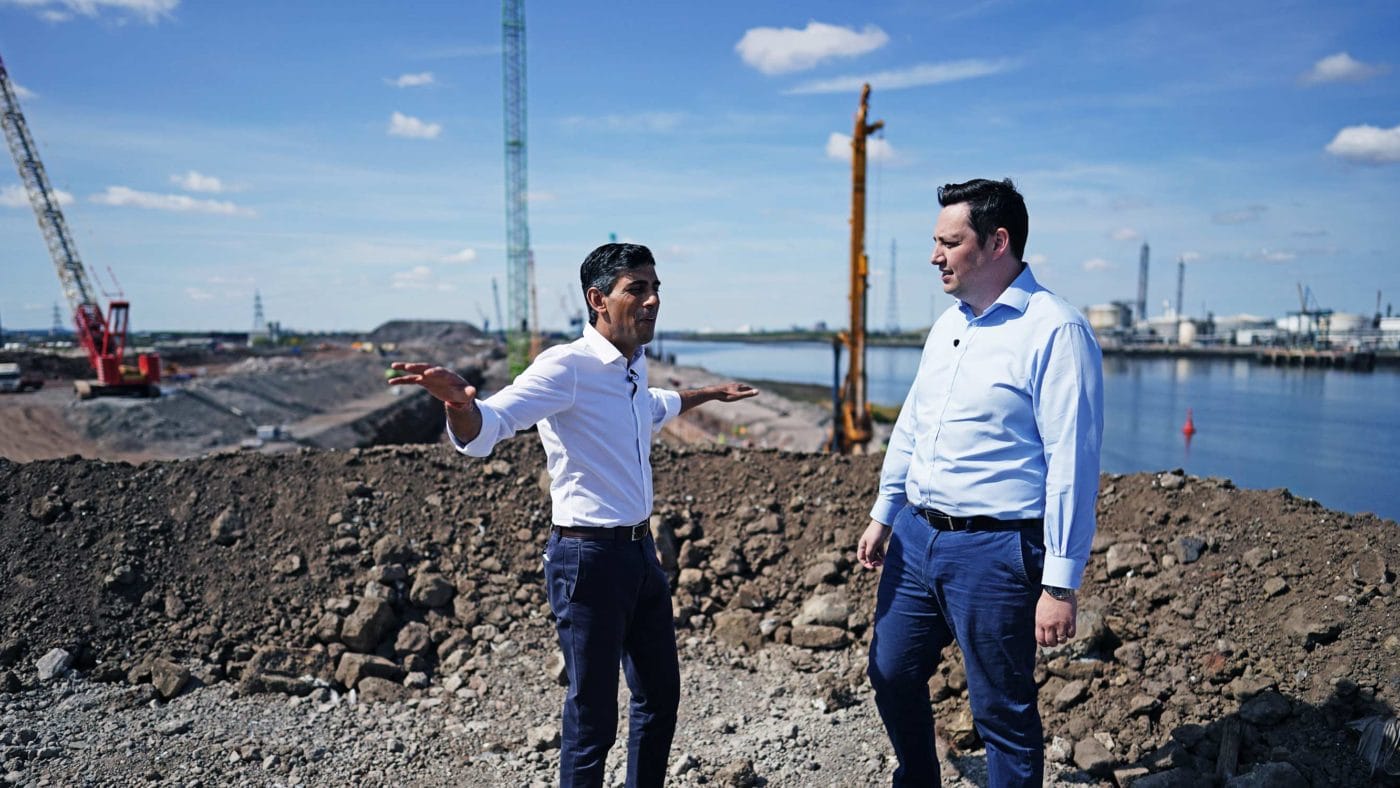Amidst the gloom, there is some welcome news this week. The UK’s first Freeports in Plymouth, Solent, and Teesside are up and running. This is a distinctively Conservative approach to levelling up. Rather than subsidies or Whitehall picking winners, it is about unleashing free enterprise where it is most needed.
There will be a bit of money for infrastructure and trade promotion, but the overriding ambition is to allow wealth creation by getting the state out of the way. There will be lower taxes and less bureaucracy.
Enhanced capital allowances, lower Business Rates, relief from Stamp Duty and employer National Insurance contributions for additional employees offer an incentive to invest. Greater rewards will encourage entrepreneurs to take risks and create jobs.
It’s not just about tax, but regulation, which will be lightened and complemented by a ‘supportive planning environment’ for new sites.
Regulatory burdens will also be lifted. there will be a ‘supportive planning environment’ for new sites. There are also special rules on customs and tariffs, which mean that businesses in and around the new Freeports can manufacture goods using imports, then export them without having to pay tariffs, and with simplified customs procedures.
The idea of a Freeports is nothing new. Around 2,500 years ago one was established in Delos, a Greek island in the Aegean, bustling with trade in wine and olive oil. Since then various countries have come up with variations on the theme. The idea of a UK version is relatively recent, however, and springs from 2016 a paper for the Centre for Policy Studies by a certain Rishi Sunak, then a recently elected backbencher.
Back then, Sunak noted that one of the reasons he backed Brexit was because EU membership stopped us establishing Freeports. He also pointed to a number of success stories around the world, including in the Brazilian city of Manaus, where firms can benefit from a 75% reduction on corporate income tax.
The term levelling up was not in vogue when Sunak argued that his plan would ‘disproportionately benefit the North’, and that Freeports would ‘automatically be targeted to areas of higher unemployment and deprivation’. Helping such areas with incentives to do business, create jobs and innovate feels like a far more small-c conservative approach that simply doling out funds from central government and hoping for the best.
This week’s announcement is just the beginning too, with five more Freeports – for East Midlands Airport, Felixstowe and Harwich, the Humber region, Liverpool City Region and Thames – due to get the final approval soon, and more to follow after them.
One criticism of the Governmen’s approach is that we could be bolder and apply the principles of Freeports more broadly. The Government could, for instance, unilaterally abolish all the tariffs and other restrictions on the import of ‘inputs’ – all the parts needed for the supply chain for British manufacturers. Why not do that for the whole country, not just the Freeports? There is much attention on trade deals but there are some liberalising measures we can get on with without the need for years of tortuous negotiations.
I sympathise with these points. But, as Voltaire cautioned, we should not make the best the enemy of the good. Freeports allow further and faster progress than would otherwise be realistic, and they are also a useful test bed for policies that can then be rolled out on a larger scale if successful.
Another potential objection to Freeports is that rather than creating wealth, they simply shift it from one area to another. Even if that were true, if the aim is ‘levelling up’, then moving economic activity to where there has been less of it is hardly the end of the world.
Really though, investment isn’t simply a graph that goes up in one place and down in another. To think that is to embrace the old ‘zero-sum game’ fallacy. It ignores the dynamic, elastic way growth is achieved in a market economy.
And that is the crucial point: Freeports offer a bold, free enterprise remedy to those parts of our country that have seen their fortunes decline. Many have been asking what the point of a Conservative government is, or what advantages Brexit provides. Freeports offer one of the more emphatic answers to both questions.
Click here to subscribe to our daily briefing – the best pieces from CapX and across the web.
CapX depends on the generosity of its readers. If you value what we do, please consider making a donation.


